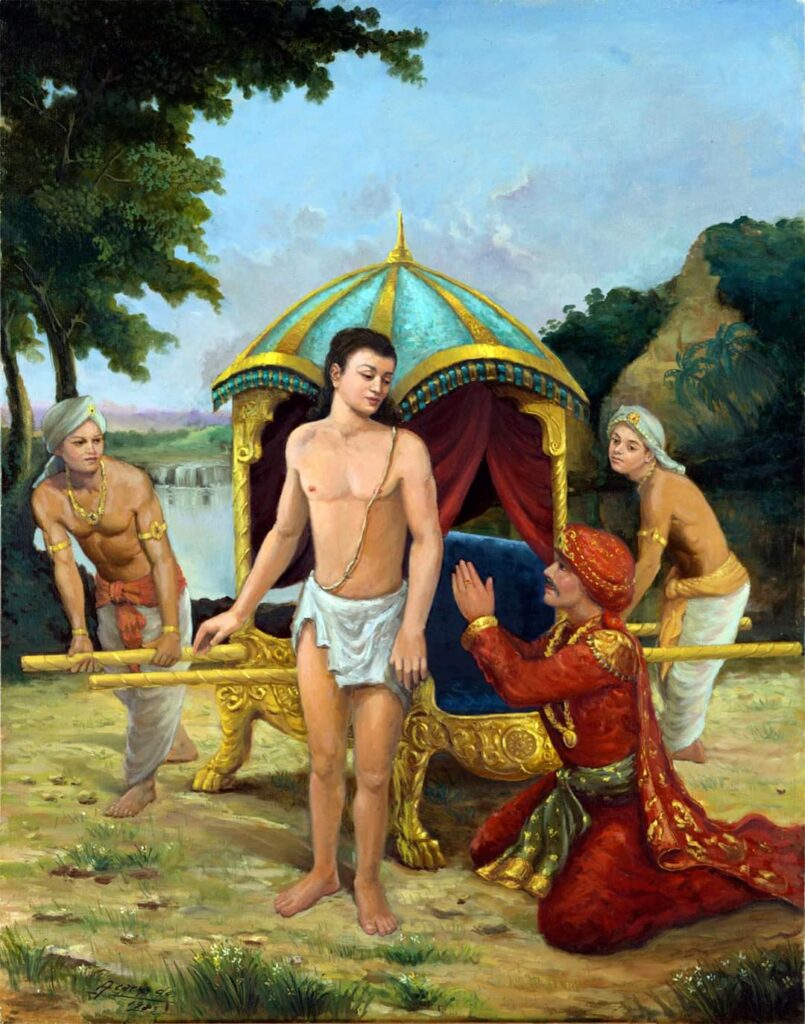Are devotees always good in a moral sense? If so, why often do devotees behave in dishonest ways?
In A Second Chance, Srila Prabhupada mentions that a true devotee will always be a good person, which means he will be kind, honest, soft-hearted, and so on. In fact, Srila Bhaktivinoda Thakura mentions that there are four classes of human beings, being the devotee the topmost.

Going from the lowest to the highest, the four classes are:
– The impious atheist
– The pious atheist
– The pious religionist
– The devotee
What is interesting in this classification is that it doesn’t include such a thing as an “impious devotee”. According to this classification, one who is impious is by definition an atheist, because a devotee will always obey the laws of God. Only an atheist will ignore such laws, and therefore one who is immoral and impious must be an atheist. Sahajiyas sometimes claim to be devotees while breaking all rules of morality and civilized life, but they are also not considered devotees. Sometimes sahajiyas are counted amongst the neophyte devotees, a definition that certainly applies to the harmless cases, but the hard cases are often considered offenders who actually envy Krsna.
In other words, one may be materially pious and still be an atheist, but it is not actually possible to be a devotee and still be impious. These are actually two contradictory terms. Or one is a devotee, or he is impious. One can’t be both at the same time. Strictly speaking, only an atheist can be impious.
We can see that in the age of Kali, most people are actually in the “impious atheist” stage. This means that for most of us, a pious and moral life is not an extra, but an essential step in our spiritual life. One mistake we may commit is exactly to try to be a devotee without following a moral life. This led to scandals and ultimately fall.
However, when one is firmly situated in the platform of devotion, he may sometimes act in ways that may appear condemnable from a material point of view, just like in the case of Arjuna killing his relatives. This is something Prabhupada mentions in the chapter 16 of the same book:
“One may even become a brāhmaṇa, a very pious man, but that does not mean he has become a devotee. And sometimes a devotee appears to act against the rules of mundane piety. Arjuna, for example, was an exalted devotee of Lord Kṛṣṇa, but he killed his relatives. Ignorant people may say, “Arjuna is not a good man. Look, he killed his grandfather, his teacher, and his nephews, devastating the entire family.” But in the Bhagavad-gītā (4.3) Kṛṣṇa says to Arjuna, bhakto ’si me: “You are My very dear friend.” In the estimation of the material world Arjuna may not be a good man, but because he is a soul surrendered to the desire of the Supreme Lord, he must be accepted as a devotee. While it is true that Arjuna killed his own kinsmen, in the eyes of Kṛṣṇa he remained a dear friend and devotee. That is the difference between a devotee and a good man of this world: A good man of this world tries to always act piously, for he knows that if he acts badly he will suffer sinful reactions; but a devotee, although naturally a very good man, can act like a bad man on Kṛṣṇa’s order and still not fall down: he remains a pure devotee and is very dear to the Lord.”
This passage brings the idea of spiritual morality, which is higher than mundane morality. In this world, morality is based on the mode of goodness, including principles such as non-violence, honesty, and so on. These are essential principles for anyone practicing spiritual life. However, morality based on the mode of goodness is not absolute. Higher than it there is a spiritual morality, that is based on the desire to fulfill the order of Krsna. Generally speaking, to kill one’s relatives is immoral. However, if the order comes directly from Krsna, then it becomes the highest morality.
One example of this is that when Yudhishthira hesitated in fulfilling the instruction of Krsna of telling a lie that would help the Pandavas to win the battle, his chariot (who was previously floating above the ground, just like in the case of the demigods) touched the earth, showing that his piety diminished.
Ordinarily, to kill one’s relatives is bad both for the person who kills and for the one who is killed, due to the repercussions of the law of karma, but when Arjuna killed his relatives in the battle of Kuruksetra under the direct guidance of Krsna, the result was wonderful for both. The relatives attained liberation, and Arjuna became recognized as Krsna’s pure devotee. The test, in this case, is the result: acts of spiritual morality will always bring wonderful results, different from impious acts, which will always bring misery, suffering, and degradation.
In other words, a devotee is always a moral and pious person. Ordinarily, he acts on the platform of ordinary morality, but sometimes when there is a direct order from Krsna or His direct representative he may act at the higher level of spirtual morality, executing actions that will bring the supreme good for all involved. One who acts in an immoral way, on the other hand, is either an atheist or a very neophyte devotee who still can’t differentiate right and wrong.
